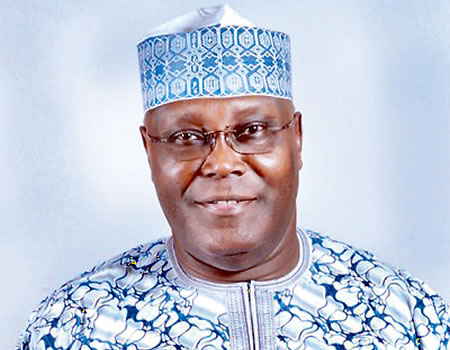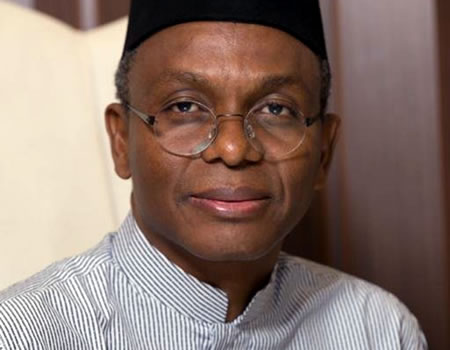The worsening crises in the northern part of the country remain a major concern to its leaders, with a number of them for the umpteenth time, declaring that the rest of the country may no longer wait for region, reports KUNLE ODEREMI
In the last decade or so, some prominent persons had been not just be outspoken but vehemence in their concern over the awesome challenges confronting the northern parts of the country. Among such eminent citizens are a former vice-president, Alhaji Atiku Abubakar; fiery Catholic priest, Matthew Kukah and the Emir of Kano Muhammadu Sanusi 11. Individually, they had used every auspicious occasions and moments to draw attention to the seeming time bomb on ground in the North because of the abysmal refusal by the political elite to empower the critical mass of the citizens.
Years of military rule could not bring about a practical change in the worsening condition of the majority of the ordinary citizens. Neither has more than 20 years that the country restored civil rule significantly altered the scenario, even before the tragedy of insurgency fully became an albatross. Apparently, a section of the northern political elite played the ostrich, pretending that those who had chosen to call for pragmatic actions and measures to avert the lurking danger were only crying wolf. Today, almost the entire North is reeling under excruciating challenges occasioned by violent crimes, mass poverty, high illiteracy and other ills that imperil economic growth and development, as well as capacity building. Extra constitutional valves such as the quota system and the principle of federal character designed to encourage the North rise to competitive pedestal with the southern axis of the country have only had salutary effect.
Humanitarian crisis
The UNCHR, the United Nations refugee agency, said the Boko Haram insurgency has displaced nearly 2.4 million people in the Lake Chad Basin, with Nigerians mostly affected resulting in more than 2.5 million InternallyDisplaced Persons (IDPs) in the North-East. According to a 2014 United Nations Children Fund (UNICEF), the number of almajiris in the North-East alone is about 2,711,767, representing 25 per cent of the total 9.5 million almajiris population in Nigeria. A similar repot claimed that in Adamawa State, there are 200,000 almajiris, with most of them migrating from neighboring Yobe, Gombe and Bauchi states. However, Bono State is said to top the chart with an estimated 1.8 million almajiris, all of whom the Federal Government, under the Goodluck Jonathan presidency initiated a special scheme to get them back to school. Thus, the administration built 165 model Almajiri Integrated Model Schools in the North to tackle the high rate of illiteracy in the region. Deeply worried by the situation, UNICEF also expressed its readiness to partner with more than 200 traditional rulers from all the states in the North to deliberate on handling Nigeria’s out-of-school children.

As vice-president as far back 2004, Atiku had decried what he perceived as the disproportionate share of unemployment and poverty in the northern states. Consequently, he had challenged the northern business community in the North, during the first Arewa business convention in Kaduna to formulate ways to address the problem through empowerment of the people for productive ventures.
Quota system and Federal Character
The frame is of the Nigerian Constitution believe that the adoption of quota system and federal character will boost national integration and engender healthy growth and entrench a sense of belonging among the constituent unis making up the federation. The application of the principles have been a subject of controversy and debate, with many saying the overall aim and objective remained a mirage. Therefore, the preponderance of opinions is that there is a need for rethink because, according to some stakeholders, the principles tend to sacrifice merit and competence and equity and fairness. In fact, some have demanded that the constitutional provisions on the two items should be expunged from the constitution.
It is against this background and other issues that the Emir of Kano, again, raised the alarm that northerners appear to be at the verge of self-destruction if they should further prevaricate over the gamut of challenges facing them. The occasion marking the 60th birthday of the governor of Kaduna State, Nasir el-Rufai, in Kaduna provided the veritable platform to sound the warning. It is Sanusi’s belief that time was running out for the North to save the region, especially because of the frightening malaise of poverty, millions of out-of-school children, malnutrition, drug abuse, almajiri and the Boko Haram insurgency. He declared: “When we talk about birthday, we talk about happiness. Just last week, someone asked me, ‘are you happy?’ And I said, ‘I am not.’ And the person was surprised. The truth is, nobody who is a leader in Northern Nigeria today can afford to be happy. You cannot be happy with about 87 per cent of poverty in Nigeria being in the North. You can’t be happy with millions of northern children out of school. You can’t be happy with nine states in the North contributing almost 50 per cent of the entire malnutrition burden in the country.
“You can’t be happy with the drug problem. You can’t be happy with the Boko Haram problem. You can’t be happy with political thuggery. You can’t be happy with all the issues; the almajiri problem that we have.”
Part of his panacea for the challnges confronting the North is what he regarded as a generation al power shift, noting that, “If we have populated the government with middle-aged men, maybe we need to try younger people, maybe we need to try women. If we have spent our money and time on physical structures; maybe we need to invest more in the education of our children. Maybe we need to invest more in nutrition. Maybe, we need to invest more in primary health care.” But the most instructive in the emir’s speech had to do with the policy of quota, which had been applied to reward hard work and industry in some areas of the nation’s life.
The position of the monarch is that concerned personalities like have consistently lamented the seeming lack of genuine action by the elite to address the problems of the North. So, he cautioned: “We have been saying this for 20 to 30 years. If the North does not change, the North will destroy itself. The country is moving on. The quota system that everybody talks about must have a sunset clause.”

Apparently, corroborating the submission of the emir, the Secretary-General of the ACF, Mr Anthony Sani, advocated a collaborative effort by all Nigerian leaders to tackle problems facing the country. “When the Emir of Kano, Sarki Kano Muhammadu Sanusi 11, says if the North does not stand up and confront the prevalence of almajirai, out-of-school children, girl-child education and drug abuse among youths, as well as against poverty that comes with unemployment and ignorance and population explosion, the region can get to a tipping point, he is stating the truism. A truism in the sense that all the listed challenges are a harbinger of insecurity. I want to add the fact that these challenges can transcend regional boundaries,” he said.
No doubt, the traditional ruler and other leaders from the North seem to be on the same page over the core challenges confronting the region. They may not have said anything new, but the realities on ground across the region are not only awesome but also scary.
The question of inequality in the North poses a grave danger to stability and any meaningful progress. The yawning gap in all fronts constitutes to say the least a time bomb, given the worrisome state of insecurity in parts of the North now. In the opinion of a university don, Adeline Nnenna Igike, inequality has continued to rise, despite propaganda to the contrary effect by state officials. “In Nigeria, the best method of going about this desired change is for the propaganda-brandishing political class to drop the instrument of propaganda in governance and run a people-centered, inclusive government; as one of the other alternatives is for the citizens to take up the challenge of change, whereupon the consequences might look like the Arab Spring,” she said.




